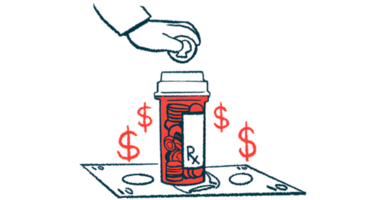FDA weighs in on ketamine for levodopa-induced dyskinesia
Agency will consider putting potential Parkinson's therapy on fast track

PharmaTher Holdings has received guidance from the U.S. Food and Drug Administration (FDA) on the late-stage clinical development of ketamine for levodopa-induced dyskinesia, or uncontrolled movements, in people with Parkinson’s disease.
“We are satisfied with the feedback we received from the Type C meeting with the FDA, which lays out the pathway to include certain study evaluations to support our proposed Phase 3 clinical study for [ketamine] as a potential treatment for levodopa-induced dyskinesia in Parkinson’s disease,” Fabio Chianelli, the founder and CEO of PharmaTher, said in a press release.
“We are evaluating our clinical development plan to conform to the FDA’s guidance that could potentially lead to a marketing approval via the 505(b)(2) regulatory pathway,” Chianelli added.
This pathway offers a faster route to approval compared to traditional regulatory pathways, as it allows the application to be based partly on studies done previously by other companies.
In the meeting, the FDA indicated that positive data from a single confirmatory Phase 3 trial would be sufficient to consider the therapy for approval. The agency also provided guidance on trial design, including treatment duration, how efficacy should be tested, and how safety should be assessed to minimize participant risk and ensure safety issues are detected.
The FDA also has advised PharmaTher to formally apply for consideration for the agency’s fast track designation, which is meant to help speed the development and regulatory review of new therapies that can fill an unmet need in serious medical conditions.
Parkinson’s is caused by the death and dysfunction of cells that make the chemical messenger dopamine. Levodopa is a mainstay Parkinson’s treatment that basically gives these cells more material with which to make dopamine.
While levodopa can be effective for controlling Parkinson’s symptoms, its long-term use often leads to the development of dyskinesia.
Ketamine is currently approved in the U.S. for use in anesthesia and pain relief. PharmaTher markets its into-the-vein ketamine product under the brand name Ketarx.
Previous data suggested that treatment with low-dose ketamine — which doesn’t induce anesthesia and is used to help several types of pain — reduced levodopa-induced dyskinesia in both Parkinson’s rat models and patients.
Prior studies
Results from a prior PharmaTher-sponsored Phase 2 clinical trial (NCT04912115) showed that low-dose ketamine was superior to midazolam — a sedative used for anesthesia, trouble sleeping, and severe agitation — at reducing levodopa-induced dyskinesia in Parkinson’s patients.
A PharmaTher-sponsored Phase 1/2 trial, involving 10 people with advanced Parkinson’s, also confirmed that two infusions of low-dose ketamine over the course of a week were generally safe, tolerated well and led to a significant reduction in dyskinesia.
Specifically, Unified Dyskinesia Rating Scale scores dropped by an average of 51% at the time of the second ketamine dose. At three months following the infusions, dyskinesia scores remained 41% lower than prior to treatment.
PharmaTher has secured a U.S. patent for the use of ketamine in Parkinson’s and other movement disorders.
The company said it will provide clinical updates on its ketamine program for Parkinson’s as they arise.







